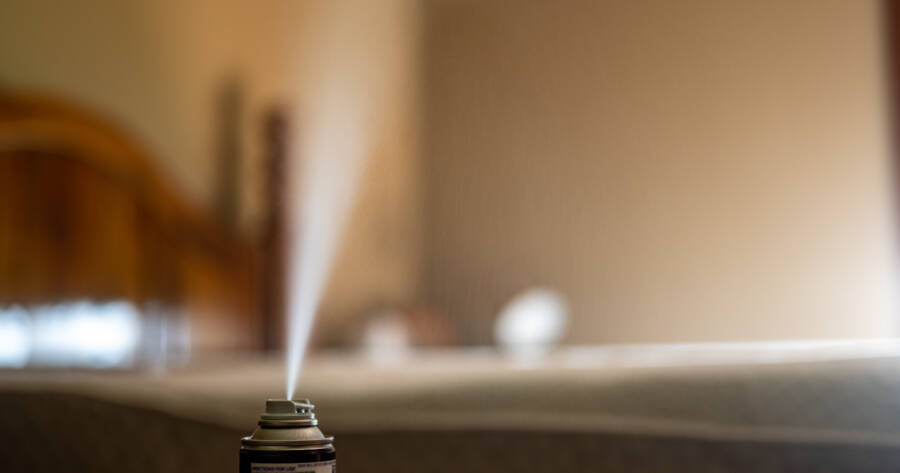Bed bugs are a persistent household pest, often challenging to eliminate. While traditional extermination methods can be costly and time-consuming, there are several affordable and effective alternatives, such as heat treatments, DIY solutions, and natural remedies like diatomaceous earth.
Don’t Wait, Exterminate Bed Bugs Quickly
Dealing with a bed bug infestation quickly is crucial because these tiny pests multiply rapidly and can quickly spread throughout your living space.1 Their bites can cause significant discomfort, itching, and, in some cases, allergic reactions. Additionally, their presence can severely disrupt your sleep and overall well-being, leading to stress and anxiety.
Left untreated, a bed bug infestation can quickly escalate, making it harder to control and potentially causing damage to furniture and belongings. Taking immediate action is crucial to prevent the problem from worsening, reduce health risks, and avoid costly treatments. Acting early not only helps protect your home but also ensures that you can quickly regain peace of mind and a healthy living environment.
DIY Bed Bug Treatments to Try
If you’re dealing with a bed bug problem, there are some do-it-yourself (DIY) treatments worth considering.2 One effective option is to thoroughly clean and vacuum your home, focusing on areas where bed bugs are likely to hide, such as mattresses, bed frames, and furniture crevices. Regular vacuuming can help reduce the population by removing bed bugs and their eggs.
Additionally, natural remedies like diatomaceous earth or non-toxic insecticides designed for bed bug control can be applied to affected areas. These options are safe for home use and can help eliminate the pests without the need for harsh chemicals, providing an affordable and eco-friendly solution to the problem.
Professionals Can Help
When it comes to dealing with a bed bug infestation, sometimes it’s best to leave it to the professionals.3 Bed bugs are notoriously elusive and challenging to eradicate on your own. Professional exterminators have the expertise, experience, and specialized equipment to thoroughly eliminate infestations and prevent future re-infestations.
While hiring professionals may seem like a significant upfront expense, it can actually save you money in the long run by effectively preventing further damage to your property, reducing health risks, and minimizing the need for repeated DIY treatments. Their thorough approach ensures that all bed bugs, including hard-to-spot eggs, are fully eradicated. Professionals use specialized tools and treatments that are far more effective than standard over-the-counter products, ensuring complete extermination and reducing the risk of future infestations. This comprehensive solution offers long-term relief, improved health, and the peace of mind that your home is fully protected from bed bugs.
Bugs Be Gone!
Don’t let bed bugs take over your home and disrupt your well-being. Acting quickly is key to stopping these pests from multiplying and causing further discomfort. Explore a range of treatment options, from DIY methods to natural remedies, and don’t hesitate to consult with professionals who can offer the most reliable and efficient solutions. With the right approach, you can effectively eliminate bed bugs and restore your home’s comfort and safety. Remember, the sooner you address the issue, the easier and more cost-effective the solution will be in the long run.
